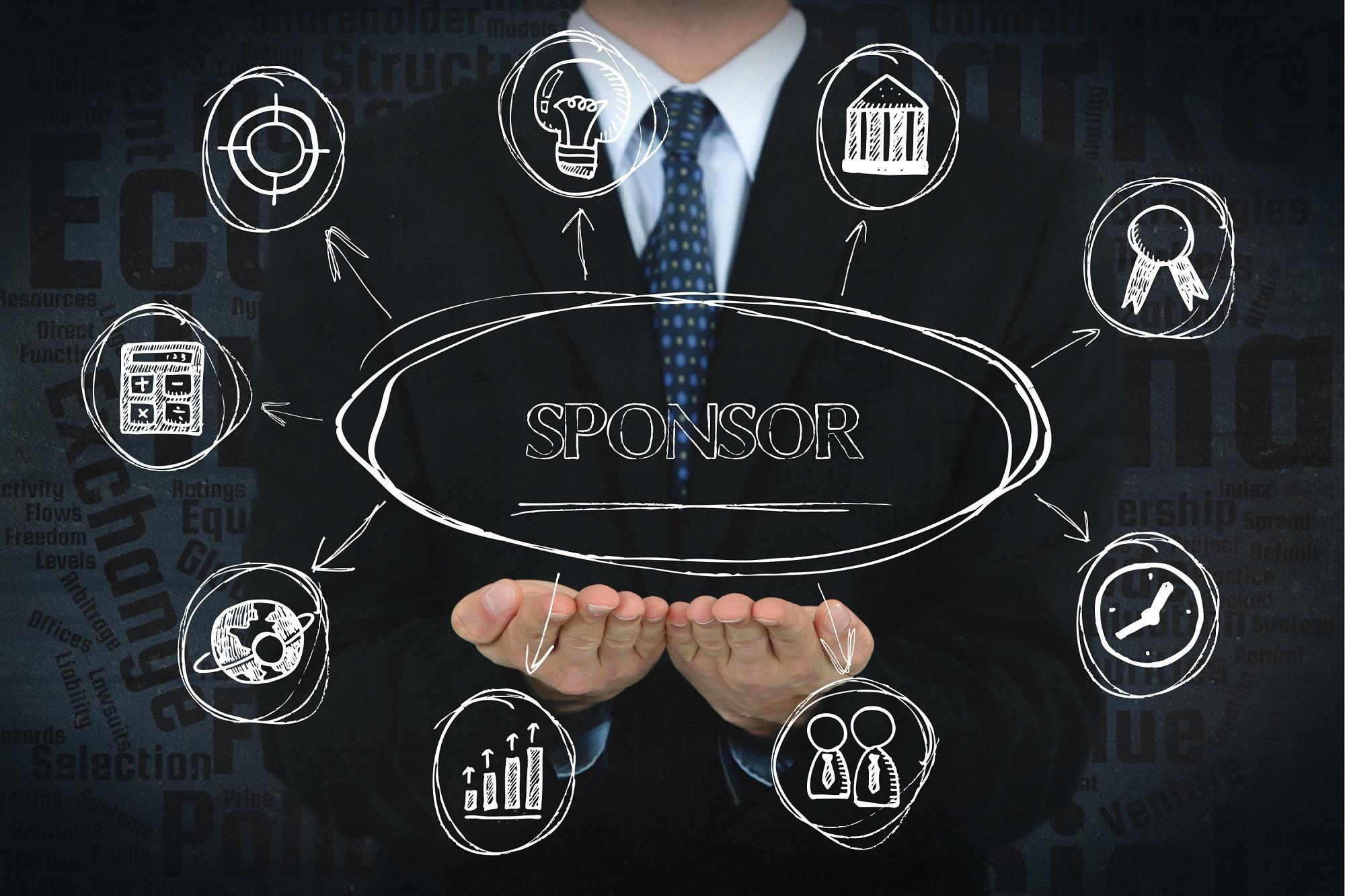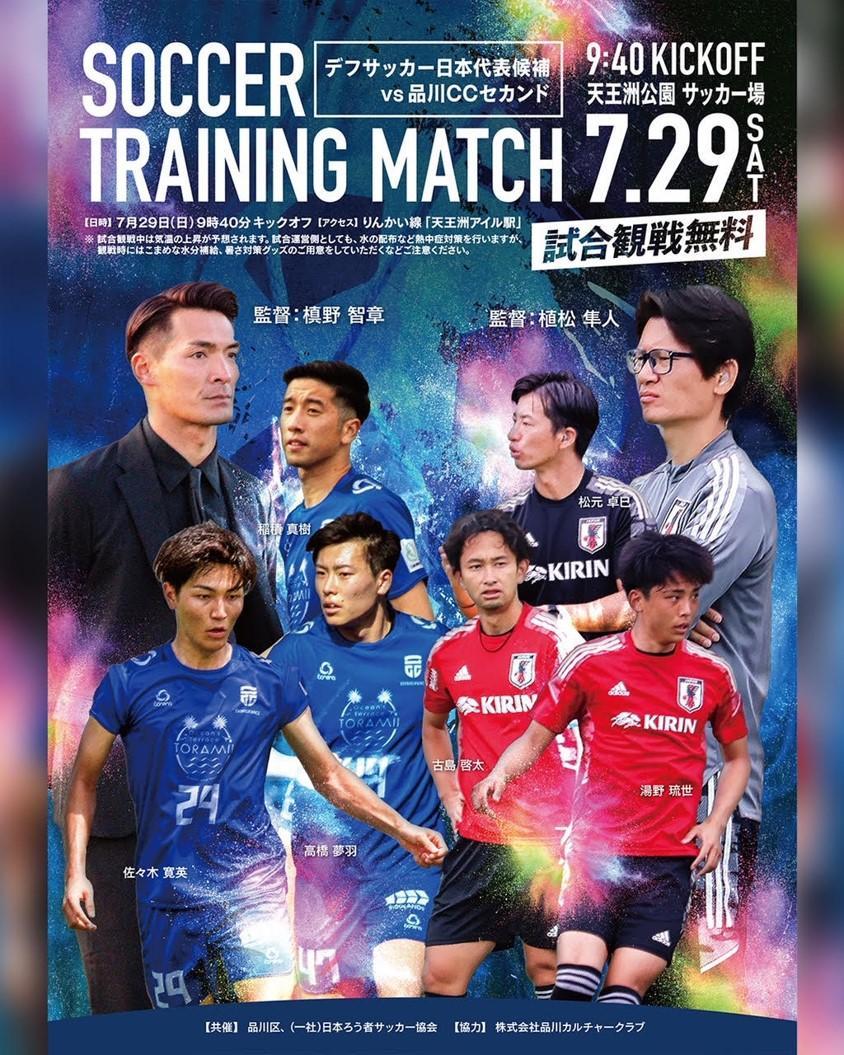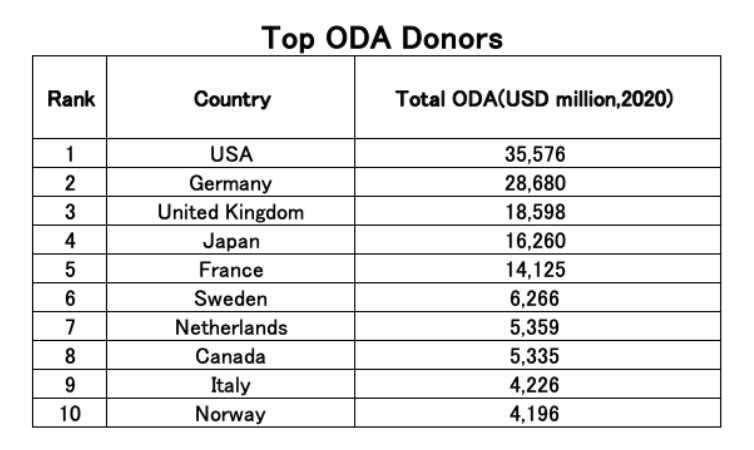
July 14, 2025
Boosting Corporate Value Through Sponsorship: Supporting the Spirit of Challenge in Deaf Soccer
Supporting the Spirit of Challenge (NS TOOL is a special partner of Deaf Soccer)
Recently, I had the chance to watch a Deaf soccer match for the first time. I found out about it through the Twitter (or should I say "X" now?) account of NS TOOL, one of our clients, who serves as a special sponsor for Deaf soccer in Japan.
It was a training game between the Japanese national Deaf team and Shinagawa CC Second, a corporate league team. The national team's head coach, Hayato Uematsu, is an employee of NS TOOL. The Shinagawa CC team is coached by none other than Tomoaki Makino, a former member of the Japan national team. Even Tsuyoshi Kitazawa, another Japan international and now President of the Japan Inclusive Football Federation, was there to watch.

What is Deaf Soccer?
For those who may not be familiar with it, I'll give a brief explanation of Deaf Soccer. Deaf Soccer is a form of soccer played by deaf athletes, meaning those with hearing impairments.
Apart from their hearing impairments, they are physically no different from able-bodied individuals, so I couldn't fully grasp how challenging it must be for someone without such a disability. In fact, even when watching the game, it seemed to me, as a complete amateur, that there wasn't much difference from the J League matches I usually watch.
Can you imagine soccer without sound?
But then I tried to imagine: What would it be like to play soccer without sound? It's like wearing noise-canceling headphones and trying to play the same game.
Things we take for granted--like calling out, "Mark number 10!", "Watch your back!" or "Pass it to the right!"--simply don't work. Encouraging phrases like "You've got this!", "It's okay! There's another chance!" or "Great play!" are also missing. They can't hear the sound of the ball being kicked or players running nearby, so they must track everything with their eyes.
Once you understand that, you realize how truly impressive these athletes are. While there are many unique challenges specific to deaf soccer, few people can truly imagine what "silent soccer" entails.
If You Don't Know, You Can't Care
Public awareness of para-sports has increased in recent years, thanks in part to the Paralympics. But even then, attention spikes only every four years, and they're not something people are constantly interested in like baseball or soccer.
Deaf soccer isn't even a Paralympic event, so it remains largely unknown to the general public (to be honest, I didn't know much about it myself until recently). And that's the thing: If people don't know something exists, they can't support it. If you don't have a Deaf soccer player in your life or haven't seen a match, it is difficult to imagine the challenges involved, and thus, it is natural that one's attention does not turn toward it.
Even with Mr. Kitazawa serving as the president of the Japan Inclusive Football Federation, Mr. Makino as the coach of a corporate team, and NS TOOL as a special partner sponsor, Deaf Soccer remains a minor sport and is hardly recognized.
Let's support those who challenge themselves!
Not limited to Deaf Soccer, there are many people striving in disability sports, but they seem to be a very small minority when considering the entire disabled population.
The following statement was found on the website of the Sports Agency:
"Among the general adult population, 51.5% participate in sports or recreational activities at least once a week. For people with disabilities, the number drops to just 20.8%. When asked why they don't participate, the most common answer wasn't "lack of financial resources" or "lack of physical strength"--it was simply: "No particular reason."
This suggests that people with disabilities simply lack opportunities to start sports, and that if they had access to facilities and opportunities, more people with disabilities would take up sports."
To do that, we need more recognition, more supporters, and more physical and financial support. That's where sponsorship can really make a difference.
Building a win-win relationship through sponsorship
Everyone agrees that supporting those who face hardship--whether due to a natural disaster, physical disability, or economic disadvantage--is meaningful. But in Japan, we tend to hesitate when it comes to promoting our good deeds.
For example, Japan is the 4th largest contributor to ODA (Official Development Assistance), in the world, its donation amounts are only about half of those in the United States, and a high proportion of donations come from corporations.
Japanese people are not reluctant to support through corporations or the government but tend to hesitate when it comes to personal donations. While there are issues with the tax system for donations, I feel that much of this stems from the Japanese aesthetic sensibility.

In that sense, social contribution activities carried out by companies on behalf of individuals are highly meaningful. I believe that corporate sponsorship, as it is commonly known, is a mechanism that should be utilized more extensively.
This is because, in recent years, the SDGs have gained significant attention, and social contribution activities have started to have a major impact on how companies are evaluated. Supporting underprivileged minor sports or disaster recovery efforts, companies can enhance their public profile, which aligns with the interests of stakeholders such as shareholders.
Some people may argue that social contribution activities should not be undertaken with the expectation of a return. But even if that is the case, by engaging in sponsorship activities, companies can provide physical and financial support to those in need, and through these efforts, more people may come to understand the situation and offer their support.
I believe that saving those in need is the most important thing, rather than debating whether there is a return on investment. Above all, if there are benefits for the sponsoring company, I believe that sponsorship of social contribution activities will become more widespread.
Corporate sponsorship activities are a way for "companies," "their stakeholders," and "those being supported" to build a win-win relationship. It is a better investment than using budgets for ordinary PR activities, as it allows companies to highlight their social responsibility and core values. For example, companies that support those who take on challenges can leave a positive impression not only on "customers" and "business partners" but also on "students seeking employment".
As such, sponsoring social contribution activities offers various benefits that enhance corporate value. Please consider sponsorship activities, as they can help those in need and support those who are striving to achieve their goals.
NS TOOL supports not only Deaf Soccer but also the "Michinoku Future Foundation," a public interest incorporated foundation that supports children who lost their parents in the Great East Japan Earthquake, and the Super Minimum Challenge (SMC), which aims to achieve the world's highest speed on a bike equipped with Made in Japan technology.
Yoshitake Kurimoto
Representative, Alpha Function Inc. With the motto, “Don’t buy stocks of companies you don’t know,” Mr. Kurimoto primarily provides IR and branding support for publicly listed companies. He also offers assistance with strategic planning, IPO preparation, and regional revitalization initiatives, such as establishing tourism DMOs. kurimoto@alpha-function.jp


